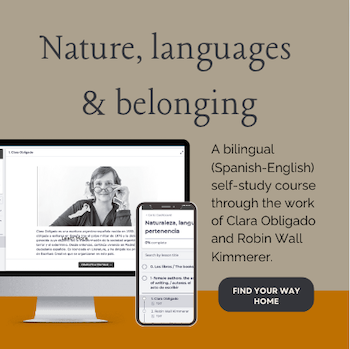
Language teachers are becoming obsolete. And I am not referring to the inherent part of the job, which makes us unnecessary if we teach the language well.
No. I mean that language teachers are becoming obsolete as a profession.
I had this thought several years ago when many language apps fixing all your language learning challenges (and fast), popped all over the language learning scene like mushrooms in autumn.
All those free lessons on YouTube (that I contributed with for some years) and self-paced courses, also free or for the price of a couple of lattes, available online, and many of them delivering a lot of quality content, have meant that (almost) everyone could access learning materials quite easily and learn a language to a comfortable level without the need of a teacher. This democratization of language learning is making language teachers obsolete.
And this is good.
It is good because it means that we, as humans, are evolving and becoming more independent in our learning. We need less hand-holding, which means that we can be less influenced in how we learn and find our own way in the learning process. Awesome!
It is good because it is forcing us, educators, to evolve. Rapidly. As rapidly as new forms of technology appear and are available to us. From our mobile phones connected to the internet to AI and Chat GPT revolutionizing how we can develop conversational abilities in a foreign tongue. Learners can practice grammar, vocabulary and sentence structure in a real-world context by conversing with ChatGPT, no real human educator involved.
All this technology and progress leads to the obsoletion of the language teacher providing grammar explanations and conversational classes.
All this is progress.
All this is evolution.
All good.
Now, one of the stages of the evolution process is variation. Without differences between teaching methods, education cannot change over time—that is, it cannot evolve. Education must display variability so that change is possible.
We know that one size never fits all anyway, and if we want to explore how language learning will look in the future, we need to explore alternatives now.
I have been exploring embodied cognition, neuroeducation and creativity in language learning, along with other areas of social responsibility directly linked to languages and education.
Because I, for one, do not want to leave education to AI and its potential to perpetuate existing biases and discrimination in education.
Critical thinking, self-awareness, empathy and the uniquely human quality of creativity are essential in education if we want education to support the survival and sustainability of the human race on the planet.
This moved me to craft the language educator training + mentoring last year and deliver it again this year. This is why it matters to me because it matters that we, language educators, evolve, deconstruct languages and language learning, unlearn and relearn ways of education that foster critical thinking, self-awareness, empathy and the uniquely human quality of creativity.
Are you with me?


